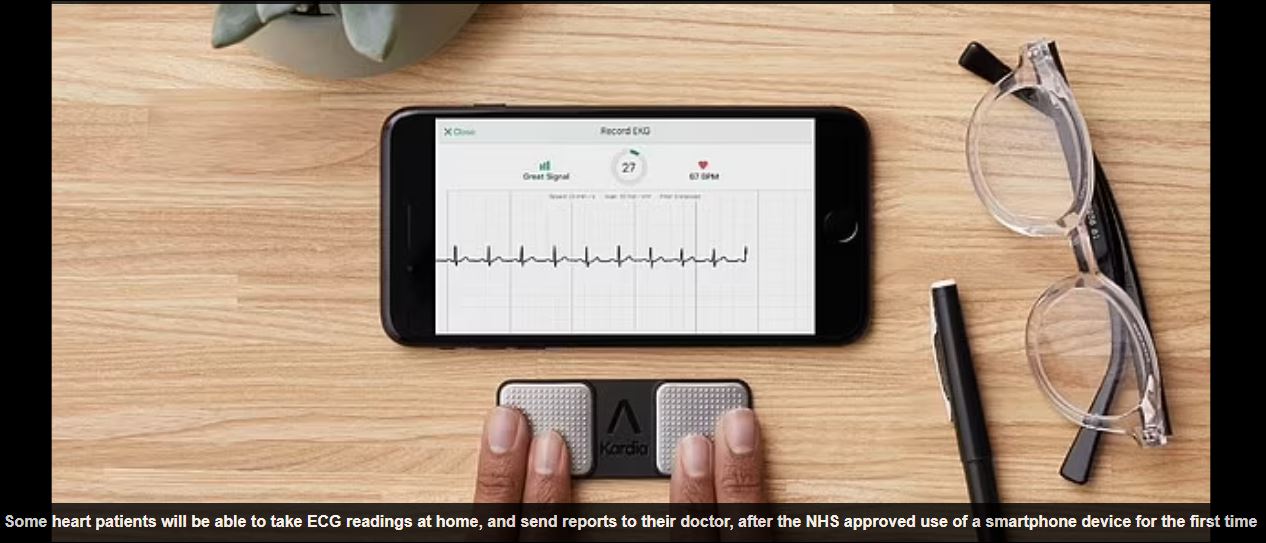The device involves a pair of touch pad electrodes and a smartphone app Patients place their fingers on the electrodes and the app takes an ECG reading It has been approved for use on the NHS by NICE as it allows for earlier detection It is approved for use in the detection and monitoring of types of atrial fibrillation
Some heart patients will soon be able to take ECG readings at home, and send reports to their doctor, after the NHS approved use of a smartphone device for the first time.
AliveCor's KardiaMobile costs £99, and involves the patient placing two fingers from each hand on either side of a small monitoring device, that sends data to an app.
While other devices, including the Apple Watch, offer an at-home ECG function, this is the only personal electrocardiogram (ECG) to be recommended by the National Institute for Health and Care Excellence (NICE) for use within the NHS.
It has been approved for detecting and monitoring atrial fibrillation (AF), an irregular heartbeat that occurs when the upper chambers of the heart beat out of coordination with the lower chambers, affecting over a million people in the UK.
In its review of the device, NICE said it had the potential to save the NHS money, and offer better patient outcomes because of the chance of earlier detection.
AliveCor's ECG device has already been approved for use in the US by the FDA, and can now be used by NHS doctors to monitor patients with suspected paroxysmal AF.
Paroxysmal atrial fibrillation is a result of a rapid, erratic heart rate that starts suddenly and stops on its own within a week.
NICE recommended the KardiaMobile app and monitor as an option for detecting the condition in people suspected of developing it at some point.

'Evidence suggests that the use of KardiaMobile reduces time to AF detection but there is no direct evidence for improved clinical outcomes after AF diagnosis,' NICE said in its recommendation of the device and app for use by the NHS.
However, the watchdog said the device's ease of use, and the fact measurements can be taken any time of the day and anywhere, make it viable for early detection.











0 Comments